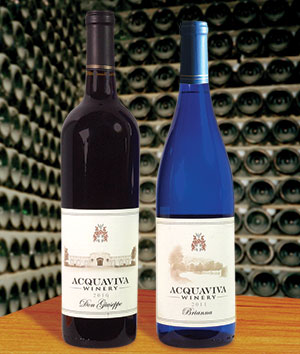 A Vino You Can’t Refuse
A Vino You Can’t Refuse
Although the address is officially in Maple Park, Illinois, Acquaviva Winery and Bistro is on a very rural stretch of Illinois Route 38, 60 miles due west of Chicago. The faux-Italianate building incongruously appears, mirage-like, as you approach.
As a child, owner Vito Brandonisio would visit his grandfather’s small vineyard in Acquaviva delle Fonti in Bari, Italy. The lessons and memories formed there carried through to adulthood as he became an amateur winemaker.
In 2002, Brandonisio fulfilled a lifelong dream of having his own wine estate when he purchased 40 acres in Maple Park, naming it Acquaviva in honor of his homeland and his grandfather. Determined to produce his wines from indigenous local grapes, here he planted such hardy Midwest varietals as Prairie Star, Brianna, Chardonel, Marechal Fosh, and Frontenac, types largely unknown even to seasoned wine connoisseurs.
By 2007, it was time to build a winery to make use of the maturing grape vines. This 20,000 square foot facility is to the north across Route 38 from the estate acreage, and in addition to the winery itself (housed on the basement level), it includes a tasting room, the bistro, a retail market, and private party facilities. Tours are available by reservation; a fee of $10 to $30 is charged, depending on tour selected.
Acquaviva encapsulates the American experience. Brandonisio is Italian, of course, his grapes are American, and his current winemaker, Sergio Benavides, is Chilean.
Brianna 2011
Personally, I’m not a fan of sweet wines with the dinner entrée. However, I realize many others don’t share my position (white zinfandel, anyone?). This Brianna is almost completely colorless in the glass. The nose features scents of peach and honeysuckle. It is indeed sweet, with flavors of pineapple, peach, and a hint of apricots.
Although not a true dessert wine, Brianna can convincingly fill in as one. This would pair nicely with Sweet Pastry Fritters, Almond Cake, or Mixed Berry Pizza.
Don Giuseppe 2010
This red blend is made entirely of Illinois grapes, although the varieties are not specified. It is surprisingly grapey on the nose, but fear not, this is no Concord.
This wine was barrel-aged for twelve months. The color is dense purple, and it has good legs. On the palate, it is quite approachable and well-balanced, with understated tannins that add just enough structure. The dominant flavors are dark berries, cedar, and a hint of black pepper, not unlike a Zinfandel, although there is none in the blend.
For dinner, go classsic with Spaghetti and Meatballs, Chicken Cacciatora, or try Braised Pork Chops with Tomatoes, Cream, and Porcini Mushrooms.
Top of page: https://winervana.com/blog/

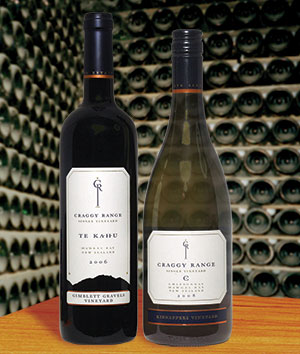 Wines from the Wasteland
Wines from the Wasteland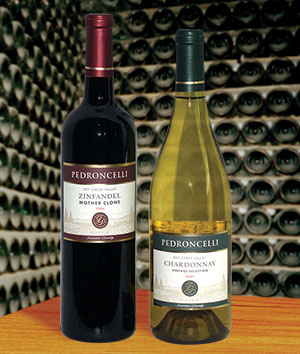 Pedroncelli was founded in 1927 in Geyerserville, California, during the middle of Prohibition, and began by selling grapes to local home winemakers. After Repeal in 1933, Pedroncelli began to make their own wines in a winery that had been sidelined as a barn.
Pedroncelli was founded in 1927 in Geyerserville, California, during the middle of Prohibition, and began by selling grapes to local home winemakers. After Repeal in 1933, Pedroncelli began to make their own wines in a winery that had been sidelined as a barn.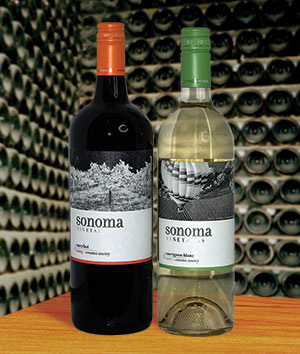 Tom Klein graduated from Stanford Graduate School of Business in 1979, and established a career as a management consultant. In 1985, Klein received an assignment to evaluate the business of Rodney Strong Vineyards. He liked what he saw, and in 1989 he and his family purchased the winery.
Tom Klein graduated from Stanford Graduate School of Business in 1979, and established a career as a management consultant. In 1985, Klein received an assignment to evaluate the business of Rodney Strong Vineyards. He liked what he saw, and in 1989 he and his family purchased the winery.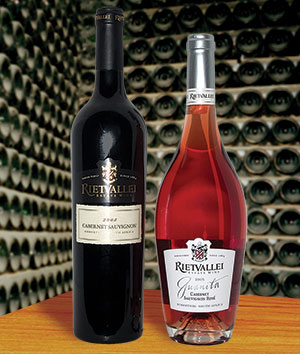 Rosés Are Red, My Love…
Rosés Are Red, My Love…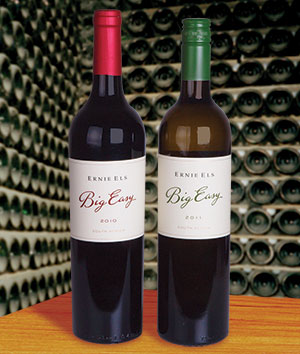
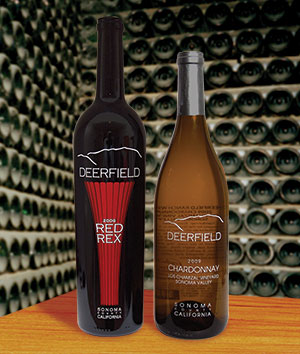
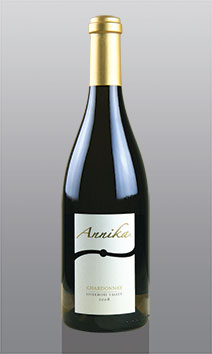
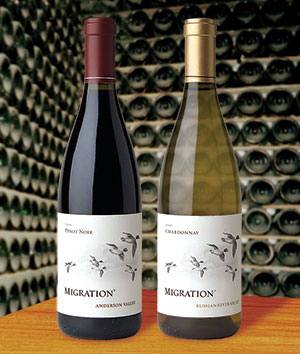 Duckhorn Portfolio is the umbrella corporation of an expanding wine mini-empire. First came the flagship Duckhorn Vineyards, established in 1976 by Dan and Margaret Duckhorn to pioneer and feature premium Napa Merlot. (Duckhorn has a “second growth” label named Decoy, as well.) Next came Paraduxx in 1994, specializing in Zinfandel-based blends. This was followed by Goldeneye, which began making Pinot Noir in 1996. Migration was established in 2001 to focus first on Pinot Noir and Chardonnay.
Duckhorn Portfolio is the umbrella corporation of an expanding wine mini-empire. First came the flagship Duckhorn Vineyards, established in 1976 by Dan and Margaret Duckhorn to pioneer and feature premium Napa Merlot. (Duckhorn has a “second growth” label named Decoy, as well.) Next came Paraduxx in 1994, specializing in Zinfandel-based blends. This was followed by Goldeneye, which began making Pinot Noir in 1996. Migration was established in 2001 to focus first on Pinot Noir and Chardonnay. The Greek wine even Greeks won’t drink. At least, all of the Greek-Americans I know won’t. And my local Greek restaurant recently quit carrying Kourtaki Retsina of Attiki (the only retsina they had), citing a total lack of demand from their customers. Quite a bold move, considering Retsina is routinely called the “iconic wine of Greece” and is ingrained in the food and drink culture of the nation.
The Greek wine even Greeks won’t drink. At least, all of the Greek-Americans I know won’t. And my local Greek restaurant recently quit carrying Kourtaki Retsina of Attiki (the only retsina they had), citing a total lack of demand from their customers. Quite a bold move, considering Retsina is routinely called the “iconic wine of Greece” and is ingrained in the food and drink culture of the nation.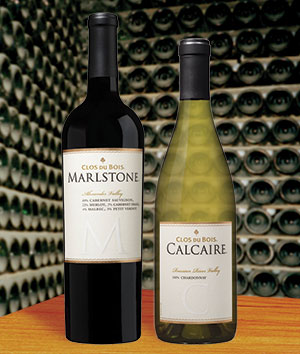
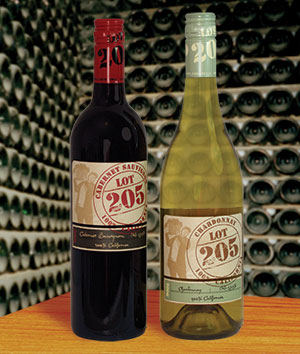
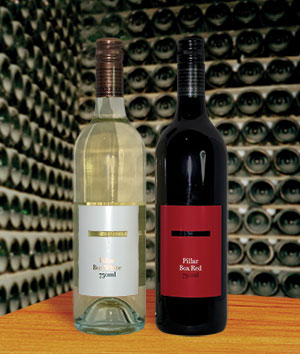
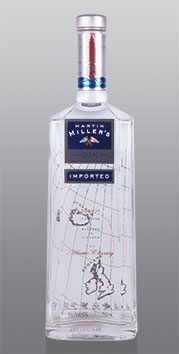 Martin Miller was an English multi-millionaire, entrepreneur, connoisseur, and self-described enthusiast of “leggy women, cigarettes, and gin.” The restless Miller built his fortune on guides to antiques, investing, and real estate ventures.
Martin Miller was an English multi-millionaire, entrepreneur, connoisseur, and self-described enthusiast of “leggy women, cigarettes, and gin.” The restless Miller built his fortune on guides to antiques, investing, and real estate ventures. When it comes to wine aeration, I am an agnostic. I rarely aerate these days, and when I do I usually use a decanter. For me, decanting and waiting an hour or two offers the best chance of improving a wine’s flavor and aroma.
When it comes to wine aeration, I am an agnostic. I rarely aerate these days, and when I do I usually use a decanter. For me, decanting and waiting an hour or two offers the best chance of improving a wine’s flavor and aroma.